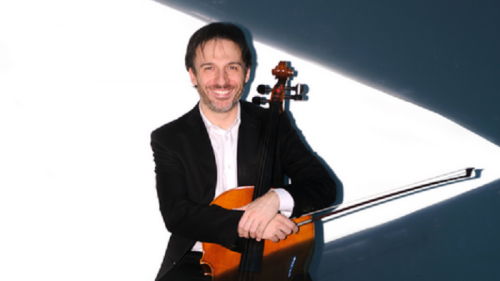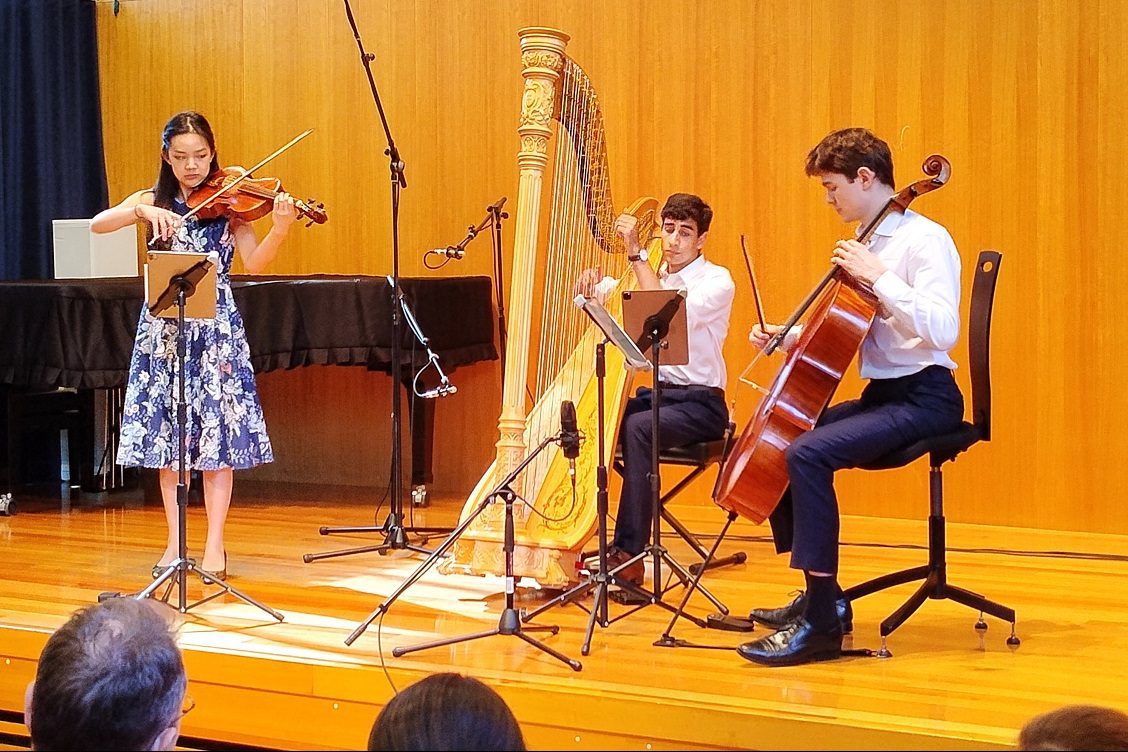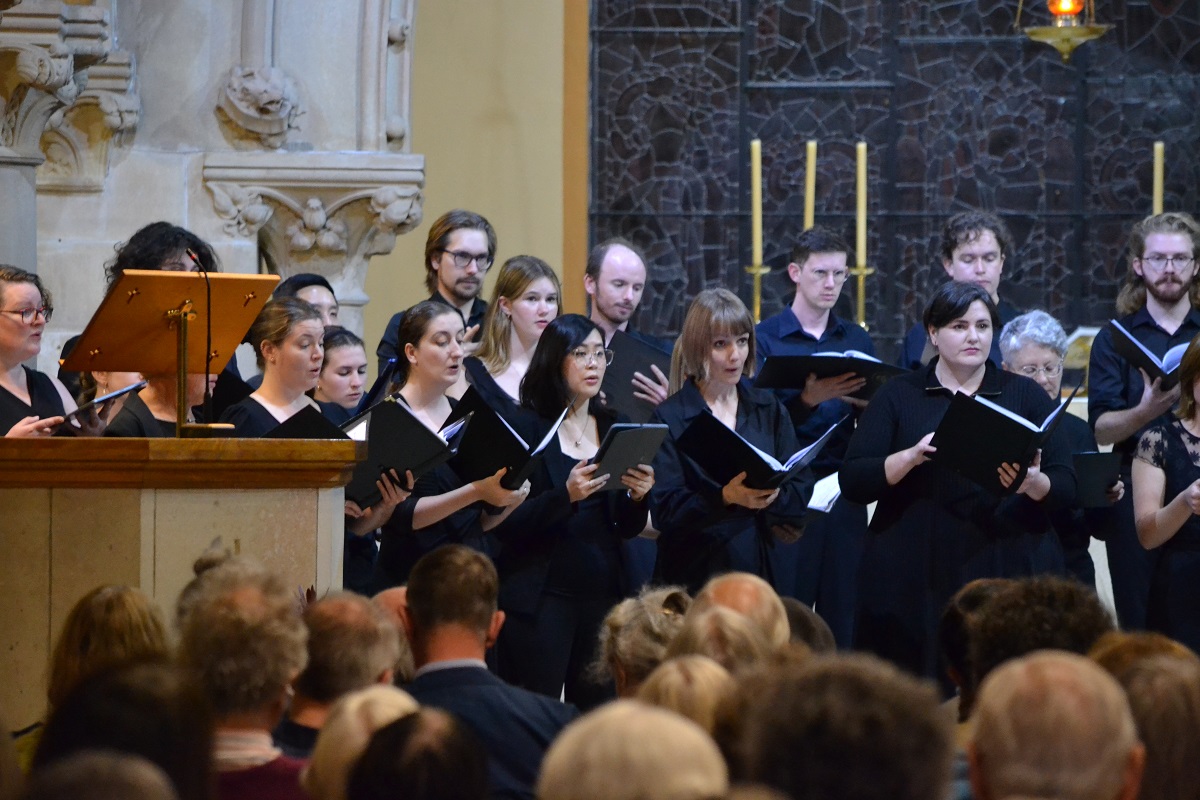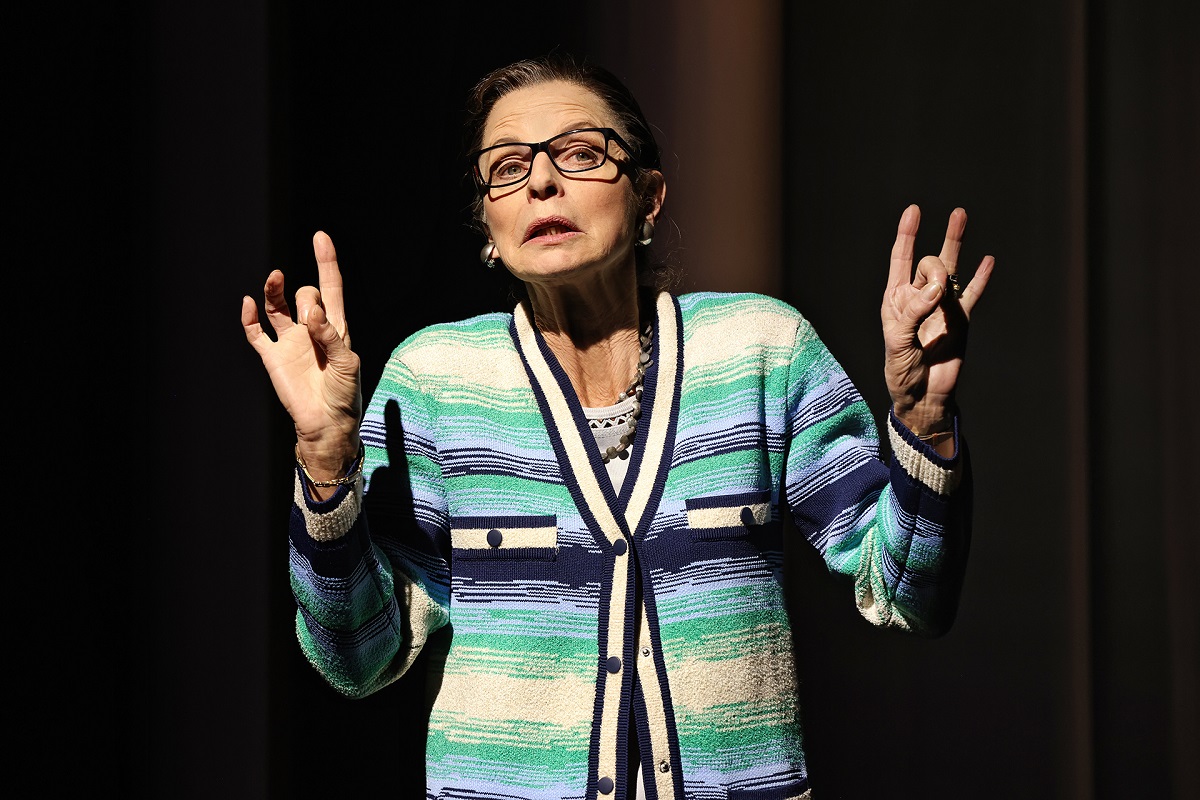FROM the forceful opening of Haydn’s “Overture” to his opera “L’isola disabitata” (The Desert Island), the music quickly diminishes to a slower and more subtle piece, and then into a regal voice that could almost be used to welcome a king or queen.

Under guest conductor Stanley Dodds, the Canberra Symphony Orchestra was very much in unison, and they needed to be to perform some of the clockwork-like movements in this composition. The strings produced a wonderful steely sound, similar to what the Berlin Philharmonic created under Herbert von Karajan.
Up next, Umberto Clerici played the cello for Schumann’s “Cello Concerto in A minor”. The conductor spoke to the audience before the piece and welcomed Clerici and members of the Italian Embassy who were there in support of their fellow countryman.
This piece is a bit of a work out for a cellist, as the cello plays almost non-stop throughout the three movements without rests between them. After only four bars from the orchestra, the cello comes in, and it rarely lets up.
Clerici is fascinating to watch as a performer. He loses himself in his playing and the musical sounds around him. He has this mannerism with his head where he raises it to the ceiling and then from left to right, with eyes closed as he plays.
Schumann’s music is full of swelling emotions. That excitement is brought out by Clerici’s bright and sensitive playing. Clerici puts his whole body into his performance, and at times he expresses himself with an audible gasp. He loves to move so much that it becomes a habit with him, as he constantly fidgets and adjusts, and he does all this while making the trickiest sounding music look easy.
The audience demanded an encore after the concerto, and they got one. Clerici came back out on stage, sat down and spoke. He told us how he wanted to give us a piece from his country, set in-between the German and Australian works we were to hear. He played a work titled “Alone” by contemporary Italian composer, Giovanni Sollima.

Over the two short movements, it went from a slow sad song where the cellist bows and plucks the strings at the same time, then to a furiously fast and Arabic sounding tune that could wear any cellist out. Much more applause was Clerici’s reward.
After the intermission, we heard the fascinating work “String Sonata No.3″ (Jabiru Dreaming), by Peter Sculthorpe. Set over two movements, the music contains the sound of nature and the indigenous people of the Kakadu. So evident is the sounds of nature in this sonata, you could say it is written in the voice of nature.
This sonata is a complex, and captivating work which hits you with the full force of the wildlife, like the buzzing mosquitos and the sounds of the area. It also reminds us just how good Sculthorpe was as a composer.
Brahms “Symphony No.3 in F Major”, takes off into flight from the very beginning and rarely lets up in the first movement. There are some beautiful flowing lines from the woodwind.
Hobbs, who conducted this without a score, clearly knows it well. He encourages the best from the players with the dynamic movement of his arms and body. He leans into each section when it’s their turn to shine.
The flowing melody in the third movement, with its rising lilt on woodwinds then echoed by the violins and violas, reminds you of a romantic movie music score. The sudden changes in dynamic and the bursts on the timpani in the fourth movement lets you know the finale is coming. It builds and builds and just before the end, it moderates to an even and subtle finish. That’s the composer’s way of saying, he has much more to come.
The conductor went around and singled out individual members of the orchestra for special audience attention. Then he moved onto each section and finally the whole orchestra; the audience never stopped applauding.
Who can be trusted?
In a world of spin and confusion, there’s never been a more important time to support independent journalism in Canberra.
If you trust our work online and want to enforce the power of independent voices, I invite you to make a small contribution.
Every dollar of support is invested back into our journalism to help keep citynews.com.au strong and free.
Thank you,
Ian Meikle, editor




Leave a Reply